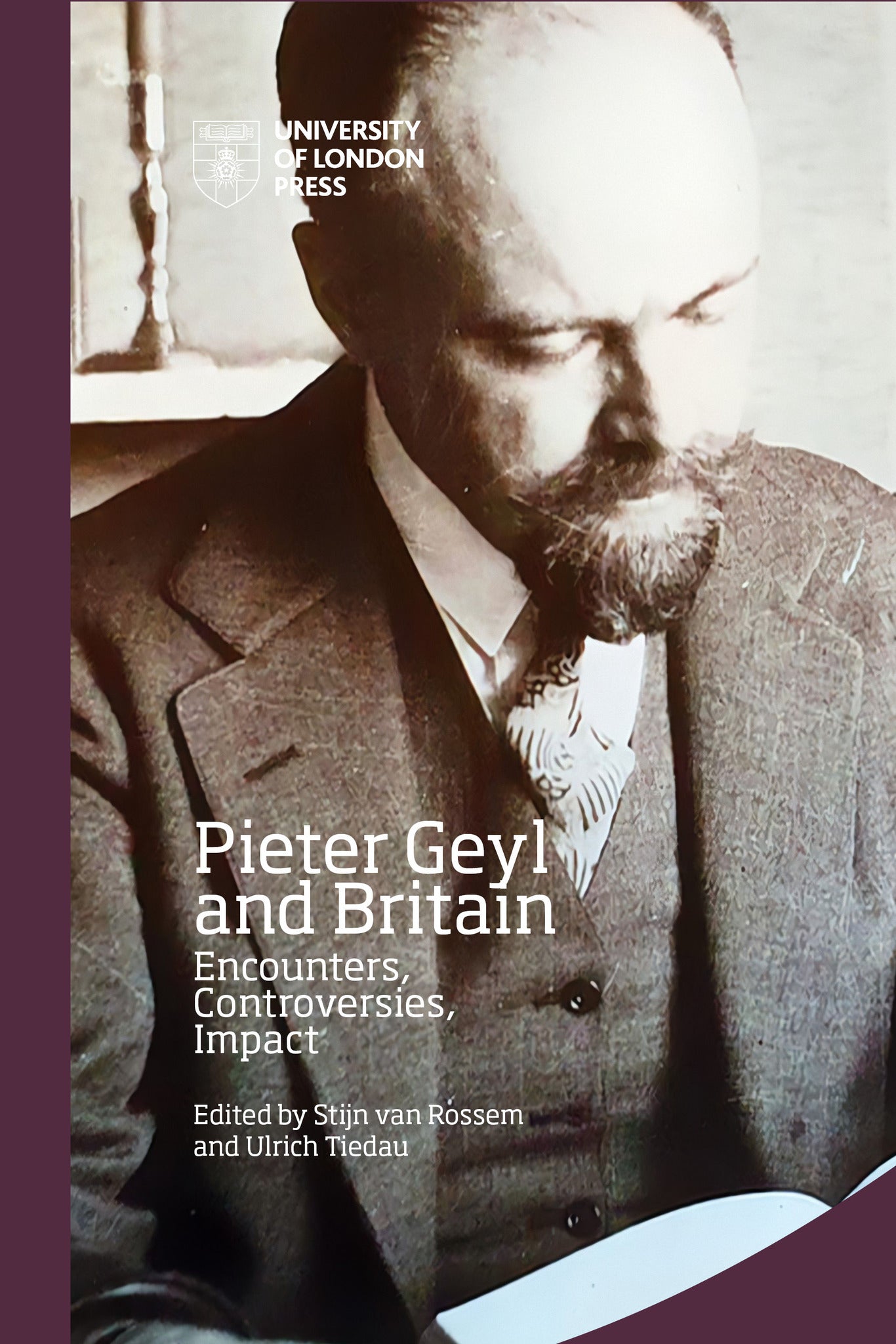We're sorry. An error has occurred
Please cancel or retry.
Pieter Geyl and Britain

Some error occured while loading the Quick View. Please close the Quick View and try reloading the page.
Couldn't load pickup availability
- Format:
-
29 September 2022

Pieter Geyl (1887—1966) was undoubtedly one of the most internationally renowned Dutch historians of the twentieth century, but also one of the most controversial. Having come to the UK as a journalist, he started his academic career at the University of London in the aftermath of World War I (1919) and played an important role in the early days of the Institute of Historical Research. Known in this time for his re-interpretation of the sixteenth-century Dutch Revolt against the Habsburgs, that challenged existing historiographies of both Belgium and the Netherlands but was also linked to his political activism in favour of the Flemish movement in Belgium, Geyl left his stamp on the British perception of Low Countries history before moving back to his country of origin in 1935. Having spent World War II in German hostage camps, he famously coined the adage of history being ‘a discussion without end’ and re-engaged in public debates with British historians after the war, partly conducted on the airwaves of the BBC. A prolific writer and an early example of a ‘public intellectual’, Geyl remains one of the most influential thinkers on history of his time. The present volume re-examines Geyl’s relationship with Britain (and the Anglophone world at large) and sheds new light on his multifaceted work as a historian, journalist, homme de lettres and political activist.

HISTORY / Historiography, Historiography, BIOGRAPHY & AUTOBIOGRAPHY / Social Activists, HISTORY / Europe / Great Britain / 20th Century, History of education

The book showcases impressive learning, especially on a micro-historical level; anyone looking to further familiarize themselves with Geyl’s work and life will find this book a helpful guide. This volume is sure to become a central point of reference in future works on Geyl. Of equal importance, this book convincingly displays Geyl’s relevance to the history of historical scholarship. His engagement with numerous academic cultures, his vast output of no fewer than 1049 publications (p. 186), his involvement in the creation of the ‘public historian’ and his proven ability to build networks and institutions are widely discussed. As such, this book succeeds in making Geyl an interesting, multidimensional subject of historical study – one that can shed light on the political and academic developments of the interwar period. And this is a true merit: Geyl’s historical works are commonly cited in a variety of fields, but he is sparsely studied as a historical subject himself. (...) The book illuminates an overlooked part of Geyl’s work but should be of interest not only to those with a pre-established interest in Geyl specifically. Researchers interested in the history and politics of historical knowledge in interwar and post-war Europe will find in this book new facts and materials for the endless debate that is history.
1. Geyl and Britain: an introduction Ulrich Tiedau / Stijn van Rossem
2. The Greater Netherlands Idea of Pieter Geyl (1887–1966) Pieter van Hees
3. Pieter Geyl and Émile Cammaerts: the Dutch and Belgian chairs at the University of London between academia and propaganda, 1914–1935 Ulrich Tiedau
4. Pieter Geyl and the Institute of Historical Research Stijn van Rossem
8. ‘It is a part of me’: The literary ambitions of Pieter Geyl Wim Berkelaar
7. Pieter Geyl and the Idea of Federalism Leen Dorsman
6. Debating Toynbee after the Holocaust: Pieter Geyl as a post-war public historian Remco Ensel
5. Pieter Geyl and the Eighteenth Century Reinier Salverda
9. The Historiographical Legacy of Pieter Geyl for Revolutionary and Napoleonic Studies Mark Edward Hay
10. Pieter Geyl and his entanglement with German Westforschung Alisa van Kleef
11. Between Leuven and Utrecht: the Afterlife of Pieter Geyl and ‘Greater Netherlands’ Fons Meijer



